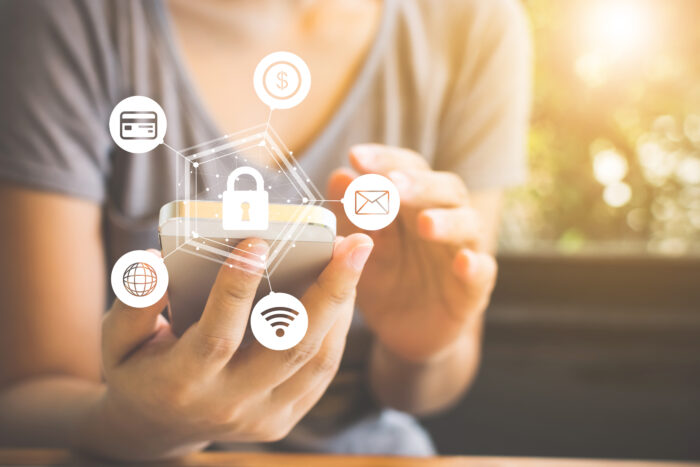
As a credit union member, your financial security is a top priority. With the rise of online banking and digital transactions, protecting your personal and financial information from cyber threats has never been more important. Cybercriminals are constantly evolving their tactics to target individuals and financial institutions alike. This blog will provide you with essential cybersecurity tips to help safeguard your accounts and personal data.
Why Cybersecurity Matters for Credit Union Members
Credit unions are known for their strong community focus and member-centric approach. However, like all financial institutions, they are not immune to cyber threats. Cybercriminals often target credit unions because they handle sensitive personal and financial information. By taking proactive steps to protect yourself, you can reduce the risk of falling victim to cyberattacks.
Common Cyber Threats to Watch Out For
- Phishing Scams: Phishing is one of the most common types of cyberattacks. It involves fraudsters sending deceptive emails, text messages, or phone calls that appear to be from your credit union or other trusted sources. These messages often contain links or attachments that, when clicked, can steal your personal information or install malware on your device.
Tip: Always verify the sender’s information before clicking on links or downloading attachments. If you receive a suspicious email or message, contact your credit union directly using a trusted phone number. - Online Banking Fraud: Cybercriminals may attempt to gain access to your online banking account by exploiting weak passwords or using malicious software. Once they have access, they can transfer funds or commit other types of fraud.
Tip: Use strong, unique passwords for your online banking account, and enable two-factor authentication (2FA) for an added layer of security. Regularly monitor your account for any unauthorized transactions. - Identity Theft: Identity theft occurs when someone steals your personal information, such as your Social Security number or credit card details, to commit fraud. This can lead to unauthorized credit accounts being opened in your name, affecting your credit score and financial stability.
Tip: Protect your personal information by shredding sensitive documents before disposal and being cautious about sharing your details online. Consider placing a fraud alert or credit freeze on your credit reports if you suspect your information has been compromised. - Ransomware: Ransomware is a type of malware that encrypts your files, making them inaccessible until a ransom is paid. While individuals are less frequently targeted by ransomware compared to businesses, it can still be a significant threat, particularly if you store important financial documents on your computer.
Tip: Back up your important files regularly to an external hard drive or cloud service. Keep your software and antivirus programs up to date to protect against the latest threats.
Best Practices for Safeguarding Your Financial Information
- Enable Account Alerts: Most credit unions offer account alerts that notify you of any unusual activity, such as large withdrawals or changes to your account information. These alerts can help you quickly detect and respond to potential fraud.
- Use Secure Connections: When accessing your online banking account, ensure that you are using a secure connection. Avoid using public Wi-Fi networks for online banking, as they are often less secure and more vulnerable to cyberattacks. Instead, use a trusted Wi-Fi network or a virtual private network (VPN) for added security.
- Be Cautious with Mobile Banking: Mobile banking is convenient, but it also requires extra precautions. Download banking apps only from official app stores, and keep your mobile device’s operating system and apps up to date. Set up a PIN or biometric authentication (such as fingerprint or facial recognition) to secure access to your device and banking apps.
- Educate Yourself and Your Family: Cybersecurity is everyone’s responsibility. Take the time to educate yourself and your family members about the latest cyber threats and how to avoid them. Encourage them to follow best practices, such as not sharing passwords and being cautious when clicking on links in emails or messages.
- Review Your Credit Reports: Regularly review your credit reports from the major credit bureaus (Equifax, Experian, and TransUnion) to check for any unauthorized activity. You are entitled to one free credit report from each bureau every year. Monitoring your credit reports can help you detect signs of identity theft early.
What to Do If You Suspect a Cybersecurity Breach
If you suspect that your account or personal information has been compromised, take immediate action:
- Contact Your Credit Union: Report any suspicious activity to your credit union right away. They can help you secure your account and guide you on the next steps.
- Change Your Passwords: If your account credentials have been compromised, change your passwords immediately. Ensure that your new passwords are strong and unique.
- Monitor Your Accounts: Keep a close eye on your accounts for any unauthorized transactions. If you notice anything unusual, report it to your credit union and consider placing a fraud alert on your credit reports.
- Consider Identity Theft Protection Services: If you are concerned about identity theft, you may want to consider enrolling in an identity theft protection service. These services can monitor your personal information and alert you to potential threats.
Conclusion
As a credit union member, you play a vital role in protecting your financial information from cyber threats. By staying informed about the latest cyber risks and following best practices, you can help ensure that your accounts remain secure. Remember, cybersecurity is a shared responsibility, and by working together with your credit union, you can help create a safer digital environment for everyone.
OpenAI. (2024). ChatGPT (4)
